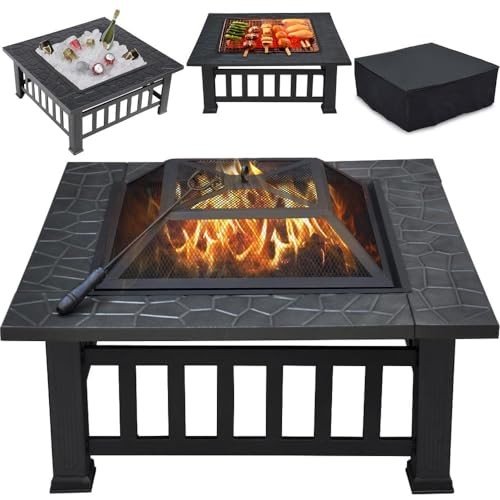17 Reasons Why You Shouldn't Avoid Buy Fireplaces UK

A Comprehensive Guide to Buying Fireplaces in the UK
Fireplaces have actually long been a focal point in homes, offering both heat and visual appeal. In the UK, the diverse climate makes fireplaces an essential feature in lots of residences. Whether one is searching for a practical heating service or a stylish focal point, comprehending the various kinds of fireplaces and the elements to think about when making a purchase is crucial. This short article will offer an in-depth overview of the kinds of fireplaces readily available, considerations before purchasing, and answers to frequently asked concerns.
Types of Fireplaces
When thinking about the purchase of a fireplace, one must understand the huge range of choices offered. Here's a breakdown of the common types of fireplaces in the UK:
| Type of Fireplace | Description | Pros | Cons |
|---|---|---|---|
| Open Hearth | Traditional fireplace; wood-burning. | Traditional appeal, good heat distribution. | Ineffective, requires more upkeep. |
| Wood-Burning Stove | Confined wood-burning unit developed for effectiveness. | High-efficiency heating, wide range of styles. | Needs area for wood storage, might need chimney lining. |
| Gas Fireplace | Uses natural or lp gas for heating. | Easy to utilize, low maintenance. | May require expert setup, can be less warm than wood. |
| Electric Fireplace | Uses electrical power to develop heat and flames. | Basic installation, does not need a chimney. | Normally less effective for heating, might do not have the atmosphere of genuine flames. |
| Bioethanol Fireplace | Burns bioethanol for a clean-burning flame. | No venting required, modern style. | Fuel can be expensive, less heat output. |
| Pellet Stove | Utilizes compressed wood or biomass pellets. | Efficient and eco-friendly. | Requires electrical energy to run, requires routine feeding and cleansing. |
Considerations Before Buying a Fireplace
Before committing to the purchase of a fireplace, a number of crucial aspects need to be taken into consideration:
- Purpose: Determine whether the fireplace will serve primarily for heating or as an aesthetic addition to the space.
- Type of Fuel: Consider the kind of fuel that best fits your requirements-- wood, gas, electrical energy, or alternative choices.
- Setup Costs: Assess the total installation expense, which may include chimney work, flue installation, or additional adjustments to the home.
- Area Availability: Check the area offered and make sure that the chosen fireplace fits easily within the designated location.
- Design and style: Choose a design that matches the existing design of your home, whether modern, rustic, or traditional.
- Maintenance: Understand the maintenance requirements associated with each type of fireplace. For circumstances, wood-burning choices may require routine cleansing of flues and chimneys.
- Energy Efficiency: Assess the energy performance of the fireplace, especially if it will function as the main heating source.
- Local Regulations: Be mindful of regional regulations and guidelines regarding setups, especially for wood-burning and gas appliances.
Frequently Asked Questions about Buying Fireplaces in the UK
1. What is the best type of fireplace for an eco-friendly home?
Response: A wood-burning stove or a pellet range can be terrific environment-friendly options, as they utilize sustainable resources. Bioethanol fireplaces are also clean and produce no damaging emissions.
2. Do I need a chimney for a gas fireplace?
Response: Most gas fireplaces need venting to the outdoors, which can be through an existing chimney or through a direct vent system that vents through the wall.
3. How do I determine the right size of fireplace for my space?
Response: The size will depend upon the room's square footage and the kind of fireplace. Generally, an expert can compute the BTUs (British Thermal Units) needed based upon the space size.
4. What is the average expense of installing a fireplace in the UK?
Response: Installation costs can differ commonly depending on the kind of fireplace and its intricacy, varying from ₤ 500 for electric fireplaces to ₤ 5,000 for some custom-made installations of wood stoves or gas units.
5. Are electric fireplaces safe to utilize?
Response: Yes, electric fireplaces are typically very safe, as they do not produce real flames or emissions. However, as with any electrical device, they must be utilized according to manufacturer guidelines.
The decision to buy a fireplace in the UK is complex and depends on numerous elements, including design, performance, purpose, and setup needs. By understanding the various types of fireplaces and assessing personal requirements and choices, one can make an educated option that improves their home and experience. With the information offered, potential purchasers can embark on their journey to find the best fireplace that combines performance with the comfort and heat that this ultimate function supplies.
In summary, investing in a fireplace is more than just selecting a heating choice; it has to do with including character to a home while making sure convenience for many years to come.

